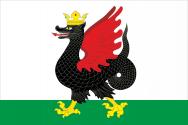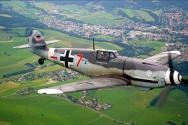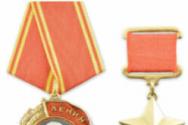The theme of war in the story by Vasily Terkin. The theme of the Great Patriotic War in the works of Tvardovsky and Sholokhov
War is a difficult and terrible time in the life of any people. It is during the period of world confrontations that the fate of the nation is decided, and then it is very important not to lose the feeling self-esteem, self-respect, love for people. In a time of difficult trials, during the Great Patriotic War, our entire country rose to defend our homeland against a common enemy. For writers, poets, and journalists at that time it was important to support the morale of the army and to help morally the people in the rear.
A.T. During the Great Patriotic War, Tvardovsky became an exponent of the spirit of soldiers and ordinary people. His poem “Vasily Terkin” helps people survive a terrible time, believe in themselves, because the poem was created during the war, chapter by chapter. The poem “Vasily Terkin” was written about the war, but the main thing for Alexander Tvardovsky was to show the reader how to live in times of difficult trials. That's why main character his poem, Vasya Terkin, dances, plays musical instrument, preparing dinner, joking. The hero lives in war, and for the writer this is very important, since in order to survive, any person needs to love life very much.
The composition of the poem also helps to reveal the military theme of the work. Each chapter has a complete structure, complete in thought. The writer explains this fact by the peculiarities of wartime; Some readers may not live to see the release of the next chapter, and for others it will not be possible to receive a newspaper with a certain part of the poem. The title of each chapter (“Crossing”, “About the reward”, “Two Soldiers”) reflects the event described. The connecting center of the poem becomes the image of the main character - Vasya Terkin, who not only raises the morale of soldiers, but also helps people survive the difficulties of wartime.
The poem was written in difficult wartime field conditions, so the writer took the language of the work from life itself. In “Vasily Terkin” the reader will encounter many stylistic turns inherent in colloquial speech:
- It’s a pity, I haven’t heard from him for a long time,
Maybe something bad happened?
Maybe there's a problem with Terkin?
There are both synonyms and rhetorical questions and exclamations, and folklore epithets and comparisons characteristic of a poetic work written for the people: “bullet-fool.” Tvardovsky brings the language of his creation closer to folk models, to living speech structures that are understandable to every reader:
Terkin said at that moment:
“It’s over for me, it’s over for the war.”
Thus, the poem, as if in a leisurely manner, tells about the vicissitudes of war, making the reader an accomplice of the events depicted. The problems raised by the writer in this work also help to reveal the military theme of the poem: attitude towards death, the ability to stand up for oneself and others, a sense of responsibility and duty to the homeland, the relationship between people at critical moments in life. Tvardovsky talks with the reader about painful issues, uses a special artistic character, – the image of the author. Chapters “About Myself” appear in the poem. This is how the writer brings his main character closer to his own worldview. Together with his character, the author empathizes, sympathizes, feels satisfied or indignant:
From the first days of the bitter year,
In the difficult hour of our native land,
Not joking, Vasily Terkin,
You and I have become friends...
The war described by Alexander Trifonovich Tvardovsky in the poem does not seem to the reader a universal catastrophe, an unspeakable horror. Because the main character works - Vasya Terkin - is always able to survive in difficult conditions, laugh at himself, support a friend, and this is especially important for the reader - it means that there will be a different life, people will start laughing heartily, singing songs loudly, joking - a time of peace will come. The poem “Vasily Terkin” is full of optimism, faith in a better future.
How is the theme of war presented in the works of A. T. Tvardovsky? (Based on the poem “Vasily Terkin”) 1. Transformation of the former Vasya Terkin, a popular popular hero, into a beloved character.
2. The image of the Motherland in the poem.
“The enormity of the terrible and sad events of the war” (in the words of “Answer to Readers...”) sang to the significant transformation of the character of the newspaper feuilletons of 1939-1940. The former Vasya Terkin was a simplified, popular figure: “a hero, fathoms in the shoulders... he takes enemies with a bayonet, like sheaves with a pitchfork.” Perhaps this was also influenced by the then widespread misconception about the ease of the upcoming campaign.
“Vasily Terkin” is a wonderful poem by A. T. Tvardovsky. From the first days of the Great Patriotic War, the poet was in the ranks of the Soviet army. He spent the entire war at the front, writing a large number of poems for Red Army newspapers. In the difficult trials of the war, the main character of Tvardovsky’s most popular poem, Vasily Terkin, a seasoned, brave, resilient Russian soldier, was born and raised. The poem about Terkin was written by Tvardovsky throughout the war.
The image of Vasily Terkin is the result of a huge number of life observations. In order to give Terkin a universal, national character, Tvardovsky chose a person who, at first glance, did not stand out with any special qualities. The hero does not express love and devotion to the Motherland in pompous phrases.
Terkin - who is he? Let's be honest: He's just a guy himself. He's ordinary. However, the guy is good. There is always a guy like that in every company, and in every platoon.
The poem has absorbed both grief and people's joy; it contains harsh, mournful lines, but even more filled with folk humor, full of great love for life. It seemed incredible that it was possible to write about the most cruel and difficult war in the history of nations so life-affirmingly, with such light life philosophy. Terkin is an experienced soldier, a participant in the war with Finland. He participated in the Great Patriotic War from the first days: “in service from June, into battle from July.” Terkin is the embodiment of the Russian character.
Like from the western border
He retreated to the east;
How did he go, Vasya Terkin,
From the reserve private,
In a salted tunic
Hundreds of miles of native land.
How big is the earth?
The greatest land.
And there was a husband's bonus.
Someone else's, or your own.
The soldiers consider Terkin their boyfriend and are glad that he ended up in their company. Terkin has no doubt about the final victory. In the chapter “Two Soldiers”, when asked by the old man whether he can beat the enemy, Terkin replies: “We will, father.” He is convinced that true heroism does not lie in the beauty of the pose. Terkin thinks that in his place every Russian soldier would have done the same thing.
I would dream, not for the sake of glory, Before the morning of battle, I would wish to go to the right bank, Having gone through the battle, to enter alive.
The image of the Motherland in the poem is always imbued with deep love. This is an old mother, and vast expanses, and great land where real heroes are born. The homeland is in danger, and it is everyone’s duty to defend it at the cost of their own lives.
The year has struck, the turn has come, Now we are responsible for Russia, for the people and for everything in the world. From Ivan to Thomas, Dead or alive, All of us together are us, That people, Russia. And since this is us, I’ll tell you, Sh>ats, We have nowhere to go from this mess. Here you cannot say: I am not me. I do not know anything. You can't prove that your house is on edge these days. It's not a big deal for you to think alone. The bomb is stupid. Foolishly will hit the spot. Forget yourself in war,
Remember the honor, however,
Get to work - chest to chest.
A fight means a fight.
The poem “Vasily Terkin” can be called an encyclopedia of the Great Patriotic War. In addition to the main character, the poem contains many other characters - soldiers serving with Terkin, ordinary residents experiencing a terrible time in the rear or in German captivity. Today we can say with confidence that the poem “Vasily Terkin” remains one of the most beloved works about the war.
The author himself wrote about “A Book for a Fighter”: “whatever its own literary significance, for me it was true happiness. She gave me a sense of the legitimacy of the artist’s place in the great struggle of the people, a sense of the obvious usefulness of my work.”
How is the theme of war presented in the works of A. T. Tvardovsky? In addition to the poems and essays written by Tvardovsky during the winter campaign of the Red Army of 1939/40, he took some part in the creation of the feuilleton character that appeared on the pages of the newspaper of the Leningrad Military District “On Guard of the Motherland” - the cheerful seasoned soldier Vasya Terkin.
“The enormity of the terrible and sad events of the war” (in the words of “Answer to Readers...”) led to a significant transformation of the character of the newspaper feuilletons of 1939-1940. The former Vasya Terkin was a simplified, popular figure: “a hero, fathoms in the shoulders... he takes enemies with a bayonet, like sheaves with a pitchfork.” Perhaps this was also influenced by the then widespread misconception about the ease of the upcoming campaign. “Vasily Terkin” is a wonderful poem by A. T. Tvardovsky. From the first days of the Great Patriotic War, the poet was in the ranks of the Soviet army. He spent the entire war at the front, writing a large number of poems for Red Army newspapers. In the difficult trials of the war, the main character of Tvardovsky’s most popular poem, Vasily Terkin, a seasoned, brave, resilient Russian soldier, was born and raised. The poem about Terkin was written by Tvardovsky throughout the war.
The image of Vasily Terkin is the result of a huge number of life observations. In order to give Terkin a universal, national character, Tvardovsky chose a person who, at first glance, did not stand out with any special qualities. The hero does not express love and devotion to the Motherland in pompous phrases.
Terkin - who is he?
Let's be honest:
Just a guy himself
He's ordinary.
However, the guy is good.
A guy like that
Every company always has
And in every platoon.
The poem has absorbed both grief and people's joy; it contains harsh, mournful lines, but even more filled with folk humor, full of great love for life. It seemed incredible that it was possible to write about the most cruel and difficult war in the history of nations so life-affirmingly, with such a bright philosophy of life. Terkin is an experienced soldier, a participant in the war with Finland. He participated in the Great Patriotic War from the first days: “in service from June, into battle from July.” Terkin is the embodiment of the Russian character.
Like from the western border
He retreated to the east;
How did he go, Vasya Terkin,
From the reserve private,
In a salted tunic
Hundreds of miles of native land.
How big is the earth?
The greatest land.
And she would be a stranger
Someone else's, or your own.
The soldiers consider Terkin their boyfriend and are glad that he ended up in their company. Terkin has no doubt about the final victory. In the chapter “Two Soldiers”, when asked by the old man whether he can beat the enemy, Terkin replies: “We will, father.” He is convinced that true heroism does not lie in the beauty of the pose.
Terkin thinks that in his place every Russian soldier would have done the same thing.
I would not dream for the sake of glory Before the morning of battle,
I would like to go to the right bank,
Having gone through the battle, enter alive. The image of the homeland in the poem is always imbued with deep love. This is an old mother, and vast expanses, and a great land on which real heroes are born. The homeland is in danger and it is everyone’s duty to defend it at the cost of their own lives. The year has struck, the turn has come,
Today we are in charge
For Russia, for the people
And for everything in the world.
From Ivan to Thomas,
Dead or alive,
All of us together are us,
That people, Russia.
And because it's us
I'll tell you, brothers,
Us out of this mess
There is nowhere to go.
You can’t say here: I’m not me,
I do not know anything,
You can't prove that it's yours
Today the house is on the edge.
It's not a big deal for you
Think alone.
The bomb is stupid. Will hit
Foolishly straight to the point.
Forget yourself in war,
Remember the honor, however,
Get to work - chest to chest,
A fight means a fight.
The poem “Vasily Terkin” can be called an encyclopedia of the Great Patriotic War. In addition to the main character, the poem contains many other characters - soldiers serving with Terkin, ordinary residents experiencing a terrible time in the rear or in German captivity. Today we can say with confidence that the poem “Vasily Terkin” remains one of the most beloved works about the war.
The author himself wrote about “A Book for a Fighter”: “whatever its own literary significance, for me it was true happiness. She gave me a sense of the legitimacy of the artist’s place in the great struggle of the people, a sense of the obvious usefulness of my work.”
During the Great Patriotic War and in the first post-war decade, works were created in which the main attention was paid to the fate of man in war. Human life, personal dignity and war - this is how one can formulate the basic principle of works about war.
The poem “Vasily Terkin” is distinguished by its peculiar historicism. Conventionally, it can be divided into three parts, coinciding with the beginning, middle and end of the war. Poetic understanding of the stages of the war creates a lyrical chronicle of events from the chronicle. A feeling of bitterness and sorrow fills the first part, faith in victory fills the second, the joy of the liberation of the Fatherland becomes the leitmotif of the third part of the poem. This is explained by the fact that A.T. Tvardovsky created the poem gradually, throughout the Great Patriotic War of 1941-1945.
This is the most amazing, most life-affirming work, from which, in fact, the military theme in our art began. It will help us understand why, despite Stalinism and the slave status of the people a great victory over the brown plague took place.
“Vasily Terkin” is a poem-monument to a Russian soldier, which was erected long before the end of the war. You read it and seem to be immersed in the element of a living, natural, precise word, flavored with humor, trickery (“What time of year is it better to die in war?”), and colloquialisms that add tartness to the language (“and at least spit in her face”) , phraseological units (“now you’re screwed”). Through the language of the poem, a cheerful, honest people's consciousness is conveyed.
Without you, Vasily Terkin,
Vasya Terkin is my hero.
And more than anything else
Not to live for sure -
Without what - without the real truth,
Truth that hits right into the soul,
If only it were thicker
No matter how bitter it was.
What else?.. And that’s all, perhaps.
In short, a book about a fighter
Without beginning, without end.
Is that why it’s like this without a beginning?
Because time is short
Start it over again.
Why without end?
I just feel sorry for the guy.
The content of the poem is truly encyclopedic; it is enough to write down the titles of the chapters: “At a halt”, “Before the battle”, “Crossing”, “Terkin is wounded”, “About the reward”, “Accordion”, “Death and the warrior”, “On the road to Berlin” , "In the bath". Vasily Terkin will be led from battle to respite, from crossing to trench, from life to death, from death to resurrection, from Smolensk land to Berlin. And the movement along the roads of war will end in the bathhouse. Why in the bathhouse, and not with the victorious red banner at the Reichstag? How does plowing, haymaking, or any sweaty work end in the village? Banya. With a brilliant guess, the peasant's son Tvardovsky came to such a truly popular ending to the poem. The bathhouse is because the sweatiest work for the people - war - has ended. In the bathhouse because you can see all the scars and scars on the body of a soldier who won the war.
With all the epic premise of the plot, there is a lyrical beginning in the poem that imparts to the narrative a piercing note of love and kindness, benevolence towards a person, be he Terkin, be an old veteran, be a friend’s wife, be a nurse, be a general. Love is dissolved in every line of the poem. Tvardovsky showed his hero in full height. He is distinguished by kindness, humor, sensitivity, benevolence, and inner strength. Terkin is the soul of the soldier's company. No wonder his comrades love to listen to his sometimes humorous and sometimes serious stories. Here they lie in the swamps, where the wet infantry even dreams of “at least death, but on dry land.” It's raining. And you can’t even smoke: the matches are wet. The soldiers curse everything, and it seems to them that “there is no worse trouble.” And Terkin grins and begins a long argument. He says that as long as a soldier feels the elbow of a comrade, he is strong. Behind him is a battalion, a regiment, a division. Or even the front. What is it: all of Russia! Last year, when a German rushed to Moscow and sang “Moscow is mine,” then it was necessary to freak out. But today the German is not at all the same, “the German is not a singer of this song from last year.” And we think to ourselves that even last year, when I was completely sick, Vasily found words that helped his comrades. He has such talent. Such a talent that, lying in a wet swamp, my comrades laughed: my soul felt lighter. He accepts everything as it is, is not busy only with himself, does not become discouraged and does not give in to panic (chapter “Before the battle”). He is not alien to the feeling of gratitude, the consciousness of unity with his people, not the statutory “understanding of duty,” but from the heart. He is savvy, brave and merciful to the enemy. All these features can be generalized into the concept of “Russian” national character" Tvardovsky emphasized all the time: “he is an ordinary guy.” Ordinary in his moral purity, inner strength and poetry. It is precisely such heroes, not supermen, who are able to charge the reader with cheerfulness, optimism and “good feelings” towards everything that is called LIFE.
Essays on literature: Military everyday life in A. T. Tvardovsky’s poem “Vasily Terkin”
Alexander Trifonovich Tvardovsky wrote an outstanding work about the war - the poem “Vasily Terkin”. The book was very much loved by almost everyone who read it, and this is no coincidence: after all, no one had ever written about the Great Patriotic War like this before Tvardovsky. Many outstanding commanders published their books in which they talked about plans for grandiose battles, the movements of armies, and the intricacies of the art of war. The military leaders knew and saw what they wrote about, and they had every right to cover this particular side of the war. But there was another life, a soldier’s, about which you need to know no less than about strategy and tactics. It is very important to understand the problems, experiences and joys of the rank and file. It is probably difficult to imagine the life of a simple soldier for a person who did not take part in the war. Tvardovsky tells us about her very truthfully, without embellishment, without holding anything back. The writer himself was at the front and learned about everything first-hand. Tvardovsky understood that the victory over Germany consisted of feats accomplished ordinary people, ordinary soldiers, such as the main character of his poem, Vasily Terkin. Who was Vasily Terkin? A simple fighter, the kind you can often meet in war. He had a sense of humor, because
In a one-minute war
Can't live without a joke
Jokes of the most unwise.
Tvardovsky himself says about him:
Terkin - who is he?
Let's be honest:
Just a guy himself
He's ordinary.
In the chapter “Terkin - Terkin” we meet another fighter with the same surname and the same name, and he is also a hero. Terkin speaks of himself in the plural, thereby showing that he is a collective image. The first exploit of Terkin that we learn about is his escape from German captivity. In those days, he could have been shot for not committing suicide. This is exactly what the country's leadership called on all prisoners in Germany. But what is the fault of a person who ends up among the enemies? He didn't do it of his own free will. Terkin was not afraid, he fled from there to again defend his homeland from the enemy. Despite this, he felt guilty:
I went into any house,
As if to blame for something
In front of her. What could he...
We see that often in war, soldiers feel guilty because someone died. When, during the crossing, one of the platoons remained on the enemy bank, other soldiers avoided talking about it:
And the guys are silent about him
In the fighting family circle,
As if they were to blame for something,
Who's on the left bank?
The soldiers no longer hoped to see their comrades alive, they mentally said goodbye to them, and suddenly the watchmen saw some point in the distance. Of course, they discuss what they saw, express different opinions, but do not even dare to think that someone could swim from that shore alive. But the fact of the matter is that Terkin again committed a heroic act - he reached his people through icy water, which is “cold even to fish.” By this he saved the life not only of himself, but also of the entire platoon, for which people were sent. Terkin acted very courageously; not everyone would dare to do this. The soldier asked the colonel for a second shot of vodka: “It’s two ends.” Terkin cannot leave his friends in the dark, so he sails back to the other side to please them with the successful outcome of his journey. And the danger for him is not only the cold, but also “the guns are firing in pitch darkness,” because
The battle is holy and right, Mortal combat is not for the sake of glory -
For the sake of life on earth.
Protecting life on earth is the main job of a soldier, and sometimes he has to sacrifice his own life and health for this. In war you cannot do without injuries, and Terkin did not escape this either. He ended up in the Germans' cellar to check whether the gun was firing from the wrong direction. The German sitting there fired and hit Terkin in the shoulder. Terkin spent a terrible day, “deafened by a heavy roar,” losing blood. They hit him with their own guns, and to die from your own is even more terrible than from your enemies. Only a day later they found him, bleeding, “with a sallow face.” Needless to say, Terkin could well not have gone there, because no one forced him to go to the enemy alone. Terkin’s attitude towards the award is interesting:
No guys, I'm not proud
Without thinking into the distance,
So I’ll say: why do I need an order?
I agree to a medal.
Everywhere and always there are people who strive for high rewards; this is the main goal of their life. Of course, there were enough of these in the war too. Many went out of their way just to receive the order. Moreover, usually these are people who do not particularly like to risk their lives, but rather sit at headquarters, curry favor with their superiors. As we understand from the words of the hero himself, he even needs the medal not to brag, but as a memory of the war, and he deserved it. Terkin does not utter loud words, but fulfills his duty, without expecting awards and honors. After all, war is continuous, hard military work. Terkin also had a terrible fight with a German:
So they came together, grappled closely,
What about clips, disks,
Machine guns - to hell, away!
If only a knife could help.
They fight one on one, “like on an ancient battlefield.” Tvardovsky understood perfectly well that such a fight is completely different, here everyone relies only on their own strength, it is like a return to the origins of martial art. The outcome of any battle depends not only on the physical strength of the opponents; ultimately, all feelings and emotions decide. And in hand-to-hand combat, this dependence of the outcome of the fight on feelings is even more pronounced. At the beginning of the chapter “Duel,” the author shows the physical superiority of the German, “fed with free goods.” But Terkin was angry that someone dared to show up in Russian houses, demand food for themselves, and establish “their own order” in the country. And Terkin was even more spurred on by the fact that the German swung his helmet at him. And this action of the German decided everything; the outcome of the fight was clear. Terkin took the “tongue” - the prey of the night. He accomplished the feat again, winning a terrible fight. Perhaps the creepiest place in the “Book about a Warrior” is the chapter “Death of the Warrior.” It tells how death came to our hero, who “lay unchosen.” Death tried to persuade him to surrender to it, but Terkin courageously refused, although it cost him a lot of effort. Death does not want to let his prey go so easily and does not leave the wounded man. Finally, when Terkin began to give in little by little, he asked Death a question:
I'm not the worst and I'm not the best
That I will die in the war.
But at the end of it, listen,
Will you give me a day off?
From these words of the soldier we understand that it is not even life that is most dear to him, he is ready to part with it, but he needs to see the victory of the Russians, he did not doubt it at all even at the very beginning of the war. Participation in the war against fascism, this most terrible and greatest event XX century is the main work of his life. In a difficult struggle, the front-line brotherhood helps the main hero. Even death is surprised by this friendship and retreats. The author claims that he has never seen such “holy and pure friendship” anywhere except war. The soldier’s life, full of dangers and hardships, was brightened up not only by friendship, but also by a kind joke. Vasily Terkin is precisely such a joker soldier, who knows how to amuse and amuse soldiers on a campaign and at a rest stop. Let us remember his humorous conversation about Sabantuy, his meeting with soldiers at a rest stop and many other episodes, warmed by a warm smile.
In the poem “Vasily Terkin” Tvardovsky showed the main character in different situations; we see Terkin on the battlefield, in the hospital, and on vacation. And everywhere he is resourceful, courageous and full of optimism. Tvardovsky created a collective image of a Russian soldier who fought against fascism, defending his homeland. The writer gave us the opportunity to follow the course of the war through the eyes of ordinary soldiers; he showed us the everyday life of war. We must honor and remember heroes such as Terkin, it was thanks to them that Russia was able to win the Second World War.







